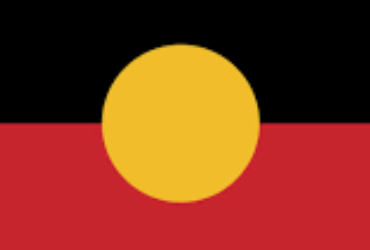
CQU research backs traditional medicine with native Gumbi Gumbi discoveries
[supplied by Mary Bolling]

LATEST NEWS

Queensland government to challenge Aboriginal group's exclusive use claim of Great Keppel Island land [Jasmine Hines and Freya Jetson, ABC] The Woppaburra people are hoping to claim nine square kilometres of land on Great Keppel Island, off the central Queensland coast near Rockhampton and known traditionally as Woppa, including an air strip and the abandoned "party paradise" Mercure resort.

Aboriginal woman details traumatising experience in hospital following Ballarat assault [Kate Ashton, ABC] A young Aboriginal woman who experienced a violent assault was able to self-discharge from a Ballarat hospital despite suffering severe head injuries, dizziness and vomiting, a truth-telling inquiry has heard.

Desert Pea Media and Bourke High School release new hip-hop banger 'ALL YOU NEED' [supplied by Toby Finlayson] Indigenous student collective ‘28 On Top’ also worked this year with original members of Bourke’s groundbreaking hip hop group ‘B-Town Warriors’ (People of the Red Sunset, Thundercloud, My Generation).
Gumbi tree planting with Dr Ryan du Preez, Dr Mani Naiker, Parbat Raj Thani,
Image: supplied
A groundbreaking study of a native Australian plant has revealed promising antioxidant and cancer-fighting properties, supporting generations of First Nations healthcare tradition.
CQUniversity’s Bioactive and Functional Foods Research Group worked with Woorabinda-based Ghungalu leaders to investigate the traditional medicine tree Gumbi Gumbi, or Pittosporum angustifolium.
Funded via CQUniversity’s BHP Chair in Indigenous Engagement since 2021, the ongoing research has published initial findings about the chemical makeup of the leaves and fruit, highlighting potent antioxidants and promising cytotoxicity against cancer cells.
Science academic Dr Mani Naiker led the project with Ghungalu Elder Uncle Steve Kemp, who provided some of the Gumbi Gumbi samples from across the Traditional Lands of the Ghungalu people.
Research team representatives recently shared findings at a workshop highlighting the long-known benefits of Australian Indigenous foods and medicine and the potential for more widespread use.
Traditionally used to treat everything from cancer and high blood pressure to diabetes and dandruff, Uncle Steve first learned about the plant from his own father.
“We’d be cruising down the highway, and Dad would point out the window and say, ‘that there, that’s medicine’ – and he knew not just from the species of tree, but also the fall of the land and the colour of the soil, and how that would make the plant more potent,” he explained.
“Now CQUniversity’s research has proved all Dad’s theories about Gumbi Gumbi - and we’ve still got a lot to research about other native medicine too.
“These findings are going to benefit everyone: people who could use these treatments and the community at Woorabinda, knowing this knowledge comes from our People.”
Uncle Steve has been working with Gumbi Gumbi for more than three decades.
“I know from the Elders when we look for medicine, we see it, we feel it, we taste it, we look at the surroundings – and that’s how we know it’s the right one,” he explained.
The Indigenous plant is found across mainland Australia and is known by a range of local names.
Dr Naiker said CQUniversity’s new native plant hub at CQIRP is also growing Gumbi Gumbi trees, and research will continue into leaf and fruit benefits, with clinical trials into its cancer-fighting potential.
“Currently, our group is also developing methods for sugar content analysis and glycaemic response in its makeup to explore the potential for natural blood sugar control methods,” Dr Naiker explained.
The Bioactive and Functional Foods Research Group advocate is also doing further analysis on how harvest time and drying methods impact potency.
CQU researchers also have ongoing projects assessing properties and uses for Native Australian ginger, Burdekin plums, tuckeroo, and native chillies in partnerships with Native Plants Capricornia, Rockhampton Regional Council's Native Plant Program, and other local growers.
Other workshop speakers bring expertise in small to medium enterprise opportunities, including members of Uncle Steve’s Yarbun Creations Indigenous business, Mark Tucek of Tucker Bush, Ryan Anderson from Henderson Park on Hedlow Creek, Director of Tropical North Queensland Drought Resilience Adoption at James Cook University’s Innovation Hub Professor David Phelps, and Neil Hoy from Central Queensland Native Plants.
Dr Naiker said the workshop was relevant to many growers, business people, investors and interested locals.
“This is a unique opportunity to explore the myriad benefits of investing in these Indigenous resources, spotlighting their potential to ignite fresh business ventures not only within First Nations communities but also across wider demographics,” he said.





.png)